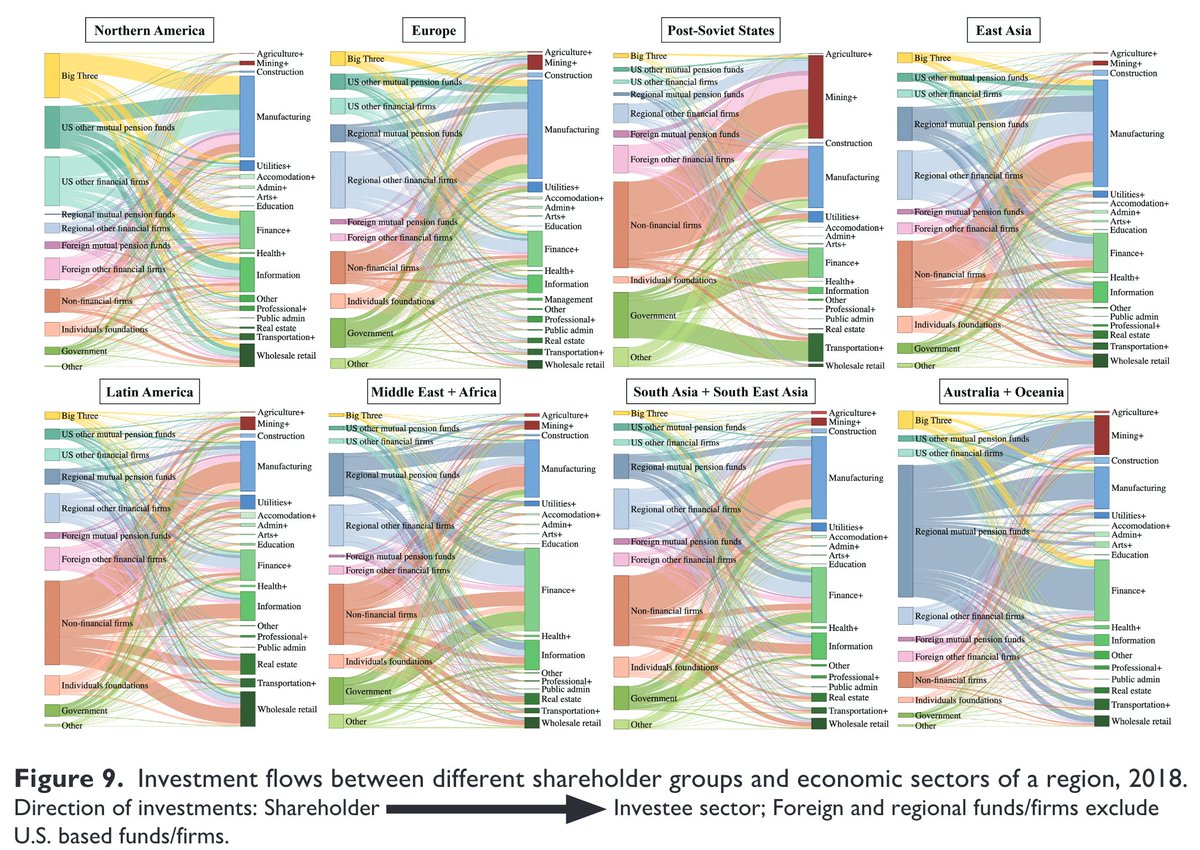Thank you, @adam_tooze! Couldn't have wished for a more cracking summary of my thoughts on asset manager capitalism. I'll take the opportunity for a brief 🧵on recent work on the topic by stars such as @adribuller, @MadisonECondon, @franziscooi, @lenorepalladino & @NataschaZwan.
https://twitter.com/adam_tooze/status/1492877079012163589
Someone who knows everything about index funds, ESG, and climate is @adribuller. Her recent @DissentMag piece on private climate finance is excellent and has links to her other work. Incredibly, Adrienne is writing two (2) books, both scheduled for 2022. dissentmagazine.org/article/the-li… 



The sharpest mind on all things universal owner, externalities, fiduciary duty, and other asset manager incentives, legal or otherwise, surely is @MadisonECondon. "Externalities and the Common Owner" is an instant classic (also on my #IPEofMoFi syllabus). scholarship.law.bu.edu/cgi/viewconten… 

.@lenorepalladino, lawyer *and* economist ("that progressive economist” – @BernieSanders) knows US corporate governance inside out. She publishes killer articles *and* is a key voice in policy debates, from curbing stock buybacks to public asset managers.
journals.sagepub.com/doi/abs/10.117…

journals.sagepub.com/doi/abs/10.117…


We haven't even talked about alternative asset managers. On European venture capital, I highly recommend @franziscooi's work. Her first article on this recently came out in @RIPEJournal (open access), more is in the making. tandfonline.com/doi/full/10.10… 

Then there's asset owners, especially pension funds. The towering figure here is, obviously, @NataschaZwan. She & colleagues are currently doing a lot of exciting work on the democratic governance of funded occupational pension schemes: deepen-norface.eu 

We'd all be completely clueless, of course, without financial journalists. Over the years I've learned a ton from @AttractaMooney and @kayewiggins, for instance, and I've been reading a lot @KateAronoff and @leee_harris recently.
That's it – end of Chartbook #82 addendum.
That's it – end of Chartbook #82 addendum.
• • •
Missing some Tweet in this thread? You can try to
force a refresh
































